<< Previous | Displaying results 491-500 of 6809 for "" | Next >>
One of seven children, Mendel was raised in a Yiddish-speaking, religious Jewish home in Sokolow Podlaski, a manufacturing town in central Poland with a large Jewish population of about 5,000. Mendel's parents ran a grain business. As a teenager, Mendel liked to play chess, and he completed his public schooling in Sokolow Podlaski in 1931. 1933-39: After finishing middle school, Mendel went to work in his parents' business. When he was 18, he fell in love with Frieda Altman who was in the same Zionist…
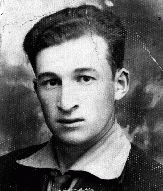
When Margit was a baby, her family moved from Austria to Prague, Czechoslovakia. Her father was a banker from a religious Jewish family in Bohemia and her mother came from a Viennese family of Jewish origin. Margit knew many languages: Czech, French, English and German, which she spoke with her family. 1933-39: In 1938, when Margit was 16, attacks on Jews in central Europe escalated and her parents decided she should leave. She left secondary school in Prague and went to Paris, where she studied…
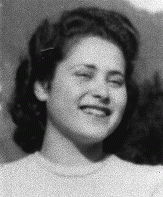
Jakab, a religious Jew, was the father of eight children. In the early 1900s he sailed to America, paying his way by shoveling coal on the ship. In New York he earned enough money to help two of his daughters immigrate. Returning to Buj, he eventually moved his family to Zalkod, a small town in northeastern Hungary. There, helped by his wife, Terez, and his son, Miklos, he ran a store and a farm. 1933-39: Jakab's daughter, Sadie, and her two children, Lillian and Arthur, are visiting from America. The…
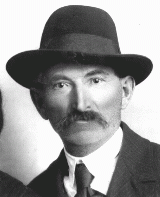
A religious Jewish mother of nine, Terez settled with her husband, Jakab, and children in Zalkod, a small town in northeastern Hungary. Jakab ran a general store. Terez tended their sprawling farmhouse. She baked black bread in their wood-burning stove and canned the peaches and plums she gathered with her children and grandchildren from the family orchards. 1933-39: Terez's oldest daughter, Sadie, is visiting from America. Sadie comes with her parents every Friday when they take the horse-drawn wagon to…
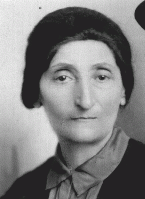
One of eight children, Jeno was born to religious Jewish parents in the northeastern Hungarian town of Buj. The family later moved to the village of Zalkod, where Jeno's father ran a general store. His schooling over, Jeno became a cabinet maker. After he married, he and his wife Eloise settled down in Sarospatak, a picturesque town with a ruined medieval fortress and the Windischgratz castle. 1933-39: Jeno's sister Sadie, who had immigrated to the United States, came to visit her parents in Zalkod. At…
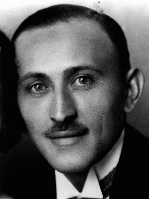
Olga was born to religious Jewish parents in a small city in Ruthenia. The country's easternmost province, Ruthenia had been ruled by Hungary until 1918. One of eight children, Olga grew up in a prosperous home in which both Yiddish and Hungarian were spoken. Her father worked as a wholesale leather merchant. Olga attended both public school and a Hebrew girls' school. 1933-39: Under Czech rule Olga could be religious and not face discrimination at school. Her parents were pleased when Ruthenia became a…
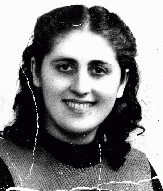
The second of seven children, Jermie was born to poor, religious Jewish parents at a time when Selo-Solotvina was part of Hungary. Orphaned as a young boy, he earned a living by working at odd jobs. In the 1920s he married a woman from his village. Together, they moved to Liege, Belgium, in search of better economic opportunities. There, they raised three daughters. 1933-39: In Liege the Adlers lived in an apartment above a cafe, and Jermie and his wife ran a successful tailoring business. Their children…
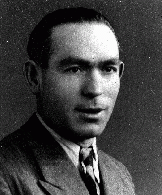
Zelda was born to a close-knit Jewish family in Sosnowiec, a city in the coal-mining region of Poland. Her father owned a restaurant and also co-owned a chocolate and candy factory. Zelda loved to dance; she was an excellent tap dancer. 1933-39: On September 4, 1939, the Germans entered Sosnowiec. Zelda's family was at her father's store when the German tanks rolled down the street. She saw people lying on the ground but didn't understand why. Her mother told her they were dead. Later, the Germans forced…
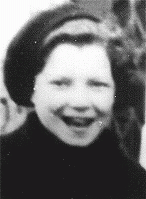
Sophie was born to a prosperous Jewish family in a village near the Hungarian border known for its winemaking and carriage wheel industries. The village had many Jewish merchants. Her father owned a lumber yard. Sophie loved to dance in the large living room of their home as her older sister, Agnes, played the piano. 1933-39: Sophie's father believed in a Jewish homeland and sent money to Palestine to plant trees and establish settlements there. When she was 10, she was sent to a school in nearby Oradea…
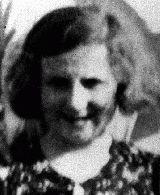
Guta was born to a Jewish family in the Polish city of Lodz, the nation's second-largest city and the center of its textile industry. Her father, a successful businessman, owned a clothing factory, which produced uniforms for the Polish army. Guta attended a private Jewish school in Lodz. 1933-39: On September 1, 1939, not long after Guta began secondary school, the Germans invaded Poland. Polish soldiers moved quickly through Lodz to defend the border, but a few days later, after being beaten, they came…
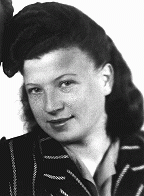
We would like to thank Crown Family Philanthropies, Abe and Ida Cooper Foundation, the Claims Conference, EVZ, and BMF for supporting the ongoing work to create content and resources for the Holocaust Encyclopedia. View the list of donor acknowledgement.